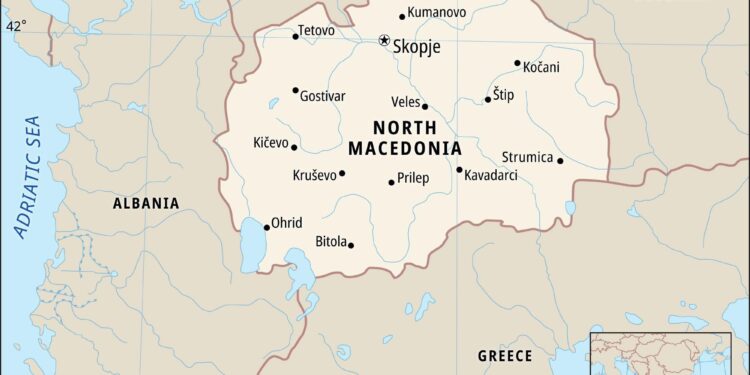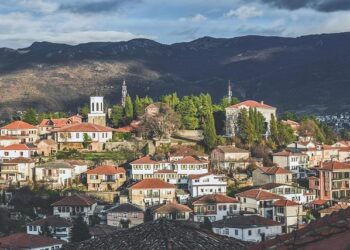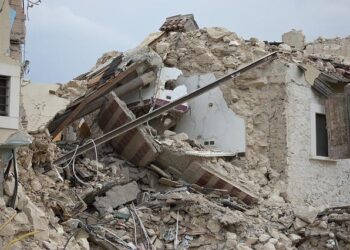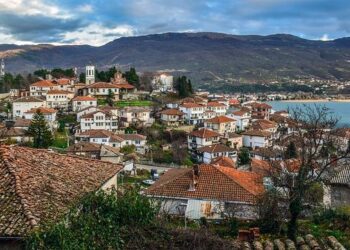North Macedonia has called for the involvement of the European Union and NATO in its ongoing talks with Bulgaria aimed at resolving a long-standing bilateral dispute. The move comes as Skopje seeks to overcome obstacles blocking its path toward EU accession and strengthen regional cooperation. Both countries have been engaged in a tense dialogue over historical and cultural issues, with North Macedonia urging international mediation to break the impasse.
North Macedonia Seeks EU and NATO Mediation in Bilateral Dispute with Bulgaria
North Macedonia has officially requested the involvement of the European Union and NATO as mediators in its ongoing bilateral dispute with Bulgaria. The dispute centers on historical interpretations, language recognition, and cultural identity, which have complicated North Macedonia’s aspirations to advance its EU membership bid. By seeking a third-party arbitration, Skopje aims to create a constructive environment that facilitates dialogue and eventual resolution, signaling a commitment to regional stability and cooperation.
Key challenges include:
- Divergent views on shared history and historical figures
- Disagreements over language recognition and minority rights
- Political tensions affecting EU accession talks
| Party | Main Concern | Role Proposed |
|---|---|---|
| North Macedonia | Recognition of language and history | Seek mediation and support |
| Bulgaria | Preservation of historical narrative | Defend national perspective |
| EU & NATO | Regional stability and integration | Act as neutral mediators |
Implications of Regional Stability and Integration for the Western Balkans
The ongoing dialogue between North Macedonia and Bulgaria marks a critical juncture for fostering regional stability and deeper integration within the Western Balkans. With North Macedonia advocating for the inclusion of the European Union and NATO in their bilateral talks, the move signals a strategic effort to secure a neutral yet influential mediation framework. This approach not only aims to resolve historical and political disputes but also to reinforce the country’s commitment to Euro-Atlantic aspirations.
- Regional stability hinges on resolving bilateral disagreements that have long hindered collaborative progress.
- The involvement of the EU and NATO could establish a precedent for conflict resolution that balances sovereignty with collective security interests.
- This development is pivotal for the future enlargement policies of the EU, ensuring that accession pathways are contingent on sustained good neighborly relations.
| Aspect | Potential Impact |
|---|---|
| Diplomatic Mediation | Enhanced transparency and trust-building |
| EU Integration | Clearer roadmap for accession negotiations |
| NATO Partnership | Strengthened security cooperation in the region |
Beyond immediate conflict resolution, these talks emphasize the broader goals of economic cooperation and sustainable development within the Western Balkans. By aligning closely with EU and NATO frameworks, North Macedonia is positioning itself as a catalyst for transformation, seeking to bridge ethnic and historical divides that have often fueled regional fragmentation. This strategic pursuit could pave the way for enhanced cross-border initiatives, increased foreign investment, and greater political cohesion, thereby stabilizing a region that is critical to European security and prosperity.
Experts Recommend Enhanced Multilateral Dialogue to Resolve Historical and Political Tensions
Specialists emphasize that resolving the long-standing historical and political tensions between North Macedonia and Bulgaria requires a broader, more inclusive approach. Rather than bilateral talks alone, involving multilateral stakeholders such as the European Union and NATO can serve as a catalyst for progress, offering neutral platforms and impartial mediation to foster trust and transparency between the parties. Experts argue that these organizations possess the institutional weight and diplomatic experience needed to navigate the complex web of historical grievances and national sensitivities.
Analysts highlight several key elements for success in this enhanced dialogue framework:
- Inclusive mediation: Involving external actors ensures balanced negotiations.
- Structured timelines: Setting clear benchmarks to measure progress.
- Cultural exchange programs: Promoting mutual understanding at grassroots levels.
- Legal frameworks: Agreeing on shared definitions of historical narratives to prevent future conflicts.
| Stakeholder | Role in Dialogue | Expected Contribution |
|---|---|---|
| European Union | Mediator and Facilitator | Guidance on accession standards and political reforms |
| NATO | Security Framework Partner | Support for regional stability and defense cooperation |
| North Macedonia & Bulgaria | Primary Negoti It looks like your message was cut off at the end of the table row for “North Macedonia & Bulgaria.” Would you like me to help you complete or format the table content? Also, if you want, I can assist with summarizing, analyzing, or rewriting the provided text. Just let me know how you’d like to proceed!The Way ForwardAs North Macedonia seeks to involve the European Union and NATO in its talks with Bulgaria, the outcome will be closely watched by regional and international stakeholders. The resolution of this dispute is seen as a crucial step toward North Macedonia’s aspirations for deeper integration into Euro-Atlantic institutions. Both sides face mounting pressure to find common ground and move forward, underscoring the delicate balance between national interests and broader strategic goals in the Balkans. ADVERTISEMENT |
















